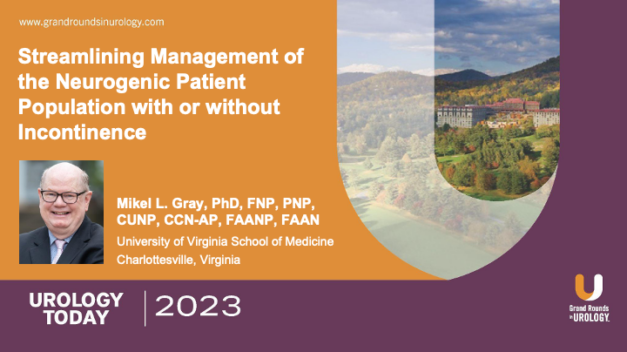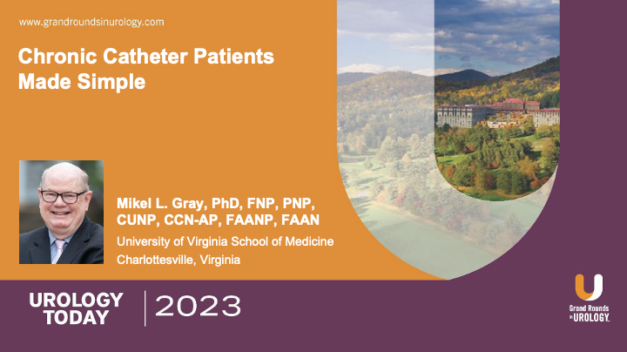Streamlining Management of the Neurogenic Patient Population with or without Incontinence
Mikel L. Gray, PhD, FNP, PNP, CUNP, CCN-AP, FAANP, delves into the management of neurogenic bladder dysfunction, with or without incontinence. He emphasizes the necessity for a comprehensive, multidisciplinary approach that integrates the latest advancements in diagnostics, therapeutics, and patient education to optimize clinical outcomes and enhance quality of life.
A focal point of Dr. Gray’s discourse is the importance of individualized care plans. Dr. Gray highlights the integration of pharmacological treatments, such as anticholinergics and beta-3 agonists, which are pivotal in managing symptoms of neurogenic bladder dysfunction. Additionally, he advocates for non-pharmacological interventions, including pelvic floor muscle training and neuromodulation therapies.
Looking ahead, Dr. Gray addresses emerging technologies and potential advancements in regenerative medicine. He highlights ongoing research and development efforts aimed at creating more effective and less invasive treatments, which could revolutionize care practices in the near future.
Read More


